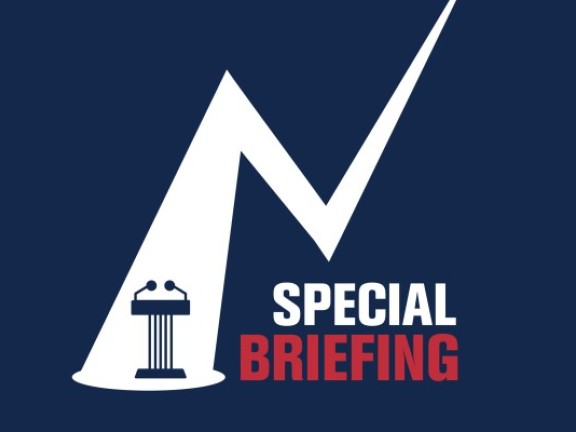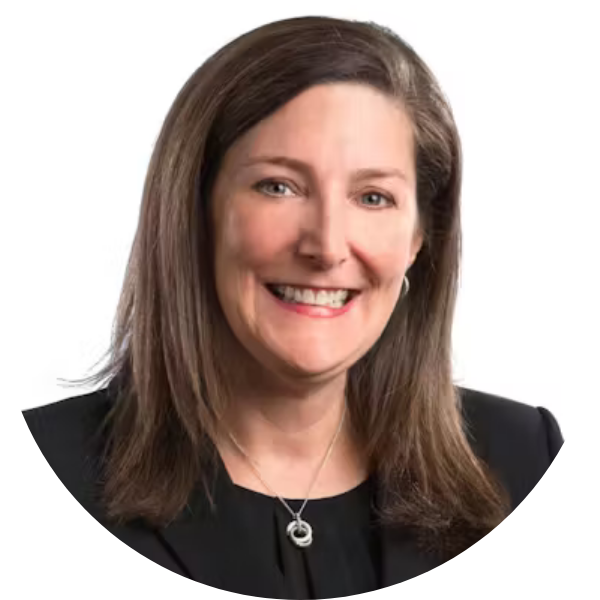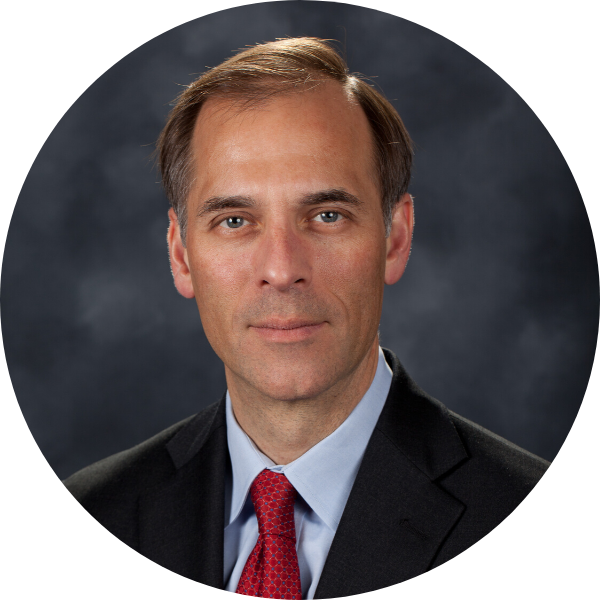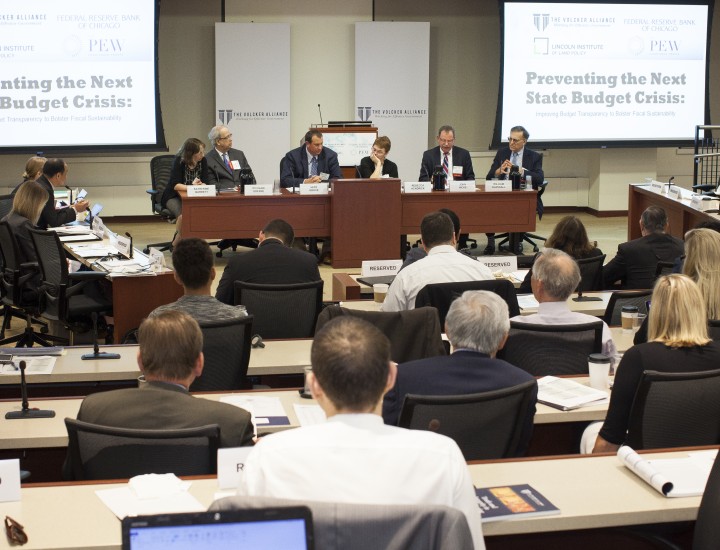Special Briefing: Year Ahead for America’s States and Municipalities

Join us for a Special Briefing as Bill Glasgall of the Volcker Alliance, Susan Wachter of the Penn Institute for Urban Research (Penn IUR), and our panel of experts discuss the year ahead for America’s states and municipalities. Fiscal 2025 will be an especially consequential one, with the Federal Reserve expected to cut interest rates for the first time in almost five years as inflation and the economy cool; the impending end of federal emergency pandemic aid; and, of course, the likely consequences of the November presidential and congressional elections.
Our panel of experts will include Vikram Rai, head of municipal markets strategy, Wells Fargo; Jane Ridley, managing director and local government sector leader, S&P Global; Matthew Stitt, managing director, PFM's Management and Budget Consulting team, and former CFO, Philadelphia City Council; and Mark Zandi, chief economist, Moody’s Analytics.
This briefing is the fifty-fourth in a series of sixty-minute online conversations featuring experts from the national research networks of the Volcker Alliance and Penn IUR, along with other leading academics, economists, and federal, state, and local leaders.
Special Briefings are made possible by the Volcker Alliance and members of the Penn IUR Advisory Board.
Recordings of the entire Special Briefings series are available on the Volcker Alliance website: SPECIAL BRIEFING SERIES ARCHIVE.
Be sure to subscribe to the Special Briefing podcast, available on Apple Podcasts, Spotify, Google Podcasts, TuneIn, iHeart Radio and more.
Also, be sure to subscribe to the Volcker Alliance newsletter and Penn IUR newsletter.
-----------------------------------------------------------------------------------------------------------------------------------------------------
ECONOMIC EXPERTS HEADLINE PANEL ON THE YEAR AHEAD FOR AMERICA'S STATES AND MUNICIPALITIES
Volcker Alliance Special Briefing Panel Examines the Outlook for 2025, a Year Projected to be Significantly Consequential for the U.S. Economy
Experts project 2025 to be a significantly consequential year in the economic sphere, with the Federal Reserve expected to further cut interest rates, as inflation and the economy cool, coupled with the impending end of federal emergency pandemic aid and a new administration being inaugurated in January.
Mark Zandi, Chief Economist, Moody’s Analytics said that interest rates are not going to be coming down to pre-Covid levels: “Those levels were not consistent with a well functioning economy – that was a period of sub-optimal inflation. The economy was struggling to kick into high gear, but here we are now, with inflation where the Fed wants it,” he said. “There's much to be optimistic about all the business formation that we've seen since the pandemic hit, and that generally means more innovation and more productivity gains. So if I were a prudent planner, I would count on a 10-year treasury yield, which is the benchmark for all of the borrowing of state and local governments, but [I think we will be] somewhere around four to four and a half percent.”
“There are some pockets of stress, but we’re really quite stable,” said Jane Ridley, Managing Director and Local Government Sector Leader, S&P Global. “S&P is projecting the same kind of expectation in terms of where the national economy is going, so that provides a stable spot for governments. And regardless of whether or not it is a strong economy or a weak one, proactive management and strong governance is really what we see across this sector too.”
When asked for a rundown on some of his local government clients’ biggest concerns for the year ahead, Matthew Stitt, Managing Director, PFM’s Management and Budget Consulting Team and former CFO, Philadelphia City Council, said that a lot of them are still facing the same issues that they were a few years ago. “A lot of local governments have had their sights on the dwindling of federal funds. They’re coming up with newer baselines as we’re starting to see what the recovery of downtown looks like after the pandemic, in terms of buildings and occupancy rates of commercial buildings – some of that is starting to be baked into projections going forward,” he said.
“I'll say that I was surprised by the size of the cut yesterday – I was expecting 25 basis points,” said Vikram Rai, Head of Municipal Markets Strategy at Wells Fargo on the news from the day before that the Federal Reserve cut interest rates by 50 basis points. “There are worries about interest rate volatility or even a rate sell off. Because despite the fact that the cut is very large, the worry is that if inflation comes back because they cut too much too quickly, then there's a rate sell off, and that's why the market has to settle down. So these worries about a great volatility or a sell off could keep investors on the sidelines a little longer.”
-----------------------------------------------------------------------------------------------------------------------------------------------------
 Vikram Rai is the Lead Strategist at the municipal division at Wells Fargo. In his last assignment before Wells Fargo, Vikram was the Head of Municipal Strategy team at Citigroup where his role entailed developing macro and sector specific trading strategies by performing macro and fundamental credit analysis. In addition to Municipal Strategy, Vikram also led the Short Duration Strategy effort with a focus on money market instruments (USTs and Corporates) to optimize funding and returns while ensuring risk and liquidity levels for Citi’s institutional clients. He also covered ESG Strategy. Before joining Citi's municipal division in 2013, Vikram was a Mortgage and Rates Trader with a focus on Constant Maturity Mortgages (CMM), TBAs and Total Return Swaps (TRS) on Government Bond Indexes. Vikram was also Citi's liaison to the U.S. Treasury. He is frequently interviewed on TV (CNBC, Bloomberg) and widely quoted in print (WSJ, FT, Bloomberg etc.) Vikram has consistently been top ranked in the All-American Institutional Investor survey and the Greenwich Survey, in multiple categories.
Vikram Rai is the Lead Strategist at the municipal division at Wells Fargo. In his last assignment before Wells Fargo, Vikram was the Head of Municipal Strategy team at Citigroup where his role entailed developing macro and sector specific trading strategies by performing macro and fundamental credit analysis. In addition to Municipal Strategy, Vikram also led the Short Duration Strategy effort with a focus on money market instruments (USTs and Corporates) to optimize funding and returns while ensuring risk and liquidity levels for Citi’s institutional clients. He also covered ESG Strategy. Before joining Citi's municipal division in 2013, Vikram was a Mortgage and Rates Trader with a focus on Constant Maturity Mortgages (CMM), TBAs and Total Return Swaps (TRS) on Government Bond Indexes. Vikram was also Citi's liaison to the U.S. Treasury. He is frequently interviewed on TV (CNBC, Bloomberg) and widely quoted in print (WSJ, FT, Bloomberg etc.) Vikram has consistently been top ranked in the All-American Institutional Investor survey and the Greenwich Survey, in multiple categories.
Before joining Citigroup in 2008, Vikram worked for the hedge fund, Old Lane LLP in the private equity division. Vikram started his professional career as a microchip designer at Sun Microsystems and then worked in the same capacity at Oracle Corp. Vikram has an MBA in finance from the University of Chicago and bachelor’s in civil engineering from the Birla Institute of Technology, India. Vikram is a CFA Charter holder.
 Jane Ridley is a Managing Director and Local Government Sector Leader in the Americas Public Finance (APF) U.S. Government Group. Prior to her role as a Sector Lead, Jane was the Analytic Manager for the Midwest local government group for nine years. Jane has been with S&P Global since 2001, and before that she was a Vice President in the Municipal Securities Group at Banc of America Securities.
Jane Ridley is a Managing Director and Local Government Sector Leader in the Americas Public Finance (APF) U.S. Government Group. Prior to her role as a Sector Lead, Jane was the Analytic Manager for the Midwest local government group for nine years. Jane has been with S&P Global since 2001, and before that she was a Vice President in the Municipal Securities Group at Banc of America Securities.
In her role as a Sector Lead, Jane’s scope encompasses the entire U.S. local government market. Her areas of expertise include distressed credits, the impact of federal policy changes on local governments, and how broader economic pressures create credit stress at the local level. During her tenure at S&P Global, Jane has worked with issuers throughout the country and served as the primary analyst for the city of Detroit through its historic bankruptcy. She is a member of S&P Ratings’ North American Credit Conditions Committee, sharing insights and expectations for the U.S. Public Finance market with practice representatives across all asset classes.

Matthew Stitt is a Managing Director in PFM’s Management and Budget Consulting team, leading the firm’s Economic and Tax Strategies practice and co-leading PFM’s Center for Budget Equity and Innovation. He advises public sector clients and leaders across the nation on structural changes, budget reforms, tax policy and financial planning – including the City of Chicago, IL, City of Atlanta, GA, and Port of Portland, OR.
Matt led PFM’s multi-city engagement with the Bloomberg Philanthropies City Budgeting for Equity & Recovery initiative, which included technical assistance for 11 cities across the United States, including New Orleans, LA, Syracuse and Rochester, NY. He is also currently leading the firm’s work with the Robert Wood Johnson Foundation-funded Public Finance Initiative developing programs that center the values of equity, sustainability, and inclusive growth in fiscal decision-making, and has co-authored multiple publications regarding emerging practices in budgeting for equity and effective change management – including an article in the April 2021 Government Finance Review on “Equitable Recovery in Practice.”
Prior to joining PFM in 2020, Matt served as the chief financial officer for the City Council of Philadelphia, leading the annual review of the County/City’s multi-billion dollar operating and capital budgets and strategic plans. As the finance lead on City Council’s senior staff, Matt was responsible for advising on the annual adoption of Philadelphia’s operating and capital budgets, evaluating legislation and key initiatives, and acting as a liaison for certain high-profile state and federal budget matters. Matt also supported City Council of Philadelphia on economic development and housing initiatives in addition to serving on numerous boards as a Council appointee – including Philadelphia’s Board of Pensions and Retirement, COVID-19 Recovery Steering Committee, and the Housing Trust Fund.
Matt instructs at the Fels Institute of Government and the Weitzman School of Design at the University of Pennsylvania as an adjunct lecturer. He was also re-appointed as a Distinguished Fellow at Fels. Matt was also recently appointed as co-chair of the Tax Reform Commission for the City of Philadelphia and serves as a board member for the Economy League of Greater Philadelphia, Philadelphia Energy Authority, Philadelphia Green Capital Corp., Philadelphia Accelerator Fund, and the Free Library of Philadelphia. Matt holds a B.A. from Haverford College, Executive MBA from Temple University and Executive MPA from the Fels Institute of Government at the University of Pennsylvania.
 Mark M. Zandi is chief economist of Moody’s Analytics, where he directs economic research. Moody’s Analytics, a subsidiary of Moody’s Corp., is a leading provider of economic research, data and analytical tools. Dr. Zandi is a cofounder of Economy.com, which Moody’s purchased in 2005.
Mark M. Zandi is chief economist of Moody’s Analytics, where he directs economic research. Moody’s Analytics, a subsidiary of Moody’s Corp., is a leading provider of economic research, data and analytical tools. Dr. Zandi is a cofounder of Economy.com, which Moody’s purchased in 2005.
Dr. Zandi is on the board of directors of MGIC, the nation’s largest private mortgage insurance company, and is the lead director of Reinvestment Fund, one of the nation’s largest community development financial institutions, which makes investments in underserved communities.
He is a trusted adviser to policymakers and an influential source of economic analysis for businesses, journalists and the public. Dr. Zandi frequently testifies before Congress and conducts regular briefings on the economy for corporate boards, trade associations, and policymakers at all levels. He is often quoted in national and global publications and interviewed by major news media outlets, and is a frequent guest on CNBC, NPR, Meet the Press, CNN, and various other national networks and news programs.
Dr. Zandi is the author of Paying the Price: Ending the Great Recession and Beginning a New American Century, which provides an assessment of the monetary and fiscal policy response to the Great Recession. His other book, Financial Shock: A 360º Look at the Subprime Mortgage Implosion, and How to Avoid the Next Financial Crisis, is described by the New York Times as the “clearest guide” to the financial crisis.
Dr. Zandi earned his BS from the Wharton School at the University of Pennsylvania and his PhD at the University of Pennsylvania.



